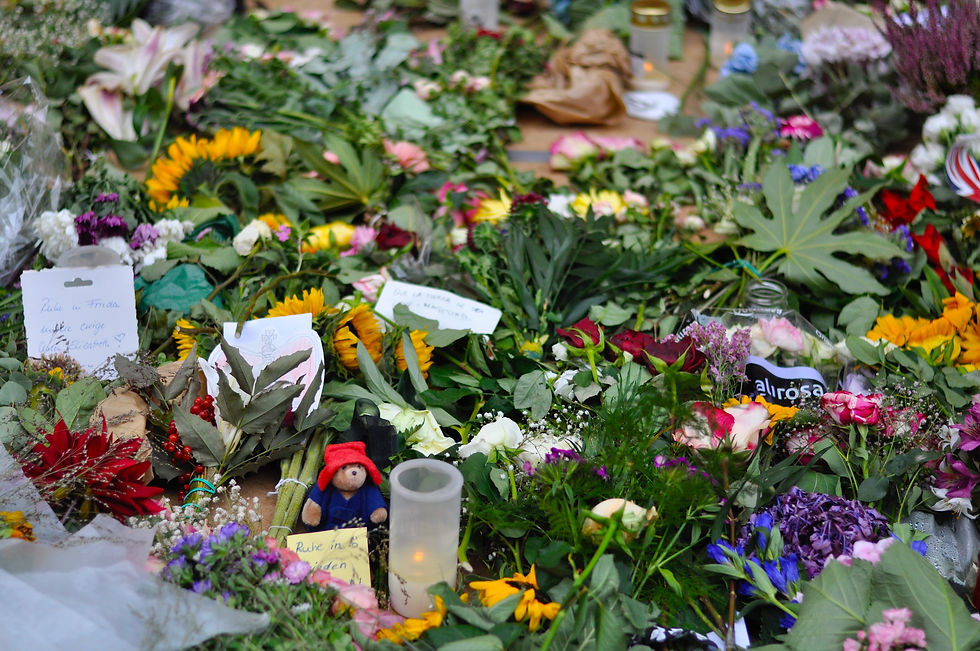When a Friendship Ends: The Quiet Corners of Grief
- Salahaddin Pordel

- Sep 3, 2025
- 3 min read

Some losses arrive with ceremony: flowers, condolences, a hush that settles over the room. But when a friendship ends, the world rarely pauses. There are no rituals, no collective sighs, no casseroles at the door. The ache settles in quietly, like a favorite book left unfinished on the table. You notice it most in the small moments: the urge to share a story, the absence of a familiar laugh, the way a memory surfaces and has nowhere to land.
The Grief We Don’t Name
Years ago, I found myself searching for language to describe this kind of loss. I turned to research, hoping to find a map for the territory. What I found was mostly silence.
Only a handful of studies even acknowledged the pain of losing a friend, and those that did often described it as a form of disenfranchised grief—a sorrow that doesn’t quite fit the mould society has made for mourning. It’s the kind of grief that’s quietly hurried along, as if the end of a friendship should be a minor inconvenience, not a real heartbreak.
What the Research Reveals
But the research that does exist tells a different story.
Williams et al. (2023) found that without space or support to process the loss of a close friend, grief often lingers in unexpected ways. It can show up as a subtle withdrawal from new connections, a reluctance to trust, or a quiet erosion of self-worth. Unprocessed grief doesn’t simply disappear; it finds its way into the corners of our lives, shaping how we show up for others and for ourselves.
The Quiet Work of Honoring Loss
It’s easy to minimize this pain, to tell ourselves it’s not important enough to grieve. As C.S Lewis reminds us,
“To love at all is to be vulnerable. Love anything and your heart will be wrung and possibly broken.”
Friendship, too, asks us to risk, to open, to care. When it ends, the loss is real, even if it’s invisible to others.
If you’re carrying this kind of grief, maybe the first step is simply to notice it. Let yourself feel the ache, without rushing to fix it or explain it away. Sometimes, the most honest thing we can do is to sit with the emptiness, to let it be what it is—a sign that something mattered.
What Helps When You’re Grieving a Friendship
If you’re finding your way through this kind of loss, here are a few gentle things that might help:
1. Make Room for the Feelings
Let yourself notice what’s there—sadness, anger, relief, gratitude, or even confusion. You don’t have to judge or change what you feel. Sometimes, just naming the feeling quietly to yourself is enough.
2. Remember What Was Good
Take time to honour what the friendship gave you. Maybe write a letter you don’t send, revisit a favourite memory, or simply sit with the gratitude for what you shared. Let the good moments be part of your story, not just the ending.
3. Create Your Own Ritual
If there’s no social script for this kind of loss, make your own. Light a candle, take a walk, or mark the transition in a way that feels meaningful to you. Small acts of remembrance can help you process and honour the change.
4. Stay Open to What Matters Now
Notice what’s important to you in this season—connection, kindness, growth, or simply rest. Let your values guide small choices, even as you carry the ache. Sometimes, reaching out to someone new or tending to another relationship can bring a quiet sense of hope.
5. Be Gentle With Yourself
Healing isn’t linear, and there’s no deadline for feeling better. If you find yourself missing your friend or feeling the loss in unexpected ways, let that be okay. You’re allowed to take your time.
Letting the Unfinished Book Rest
In time, as the days pass and the unfinished book gathers dust, you might find that the ache softens. Not because you’ve forgotten, but because you’ve allowed yourself to remember. Because you’ve honored the space where a friend once stood, trusting that even uncelebrated grief deserves a place in your story.
Reference:
Williams, A., Green, L. R., & Campbell, S. (2023). Disenfranchised grief and the loss of friendship: Social support, meaning-making, and psychological outcomes. Journal of Social and Personal Relationships, 40(2), 345-362.






Comments